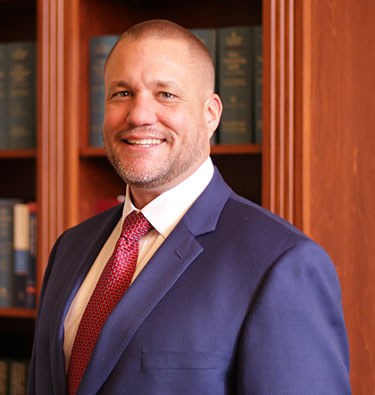
There are two primary types of law: civil and criminal. Although both operate under the same system, there are several differences between civil and criminal law.
Fundamentally, civil cases are disputes between groups or individuals, and criminal cases are the government prosecuting a violation of criminal law. Civil and criminal cases differ in many ways, from initiation through resolution.
At Bensinger Legal Services, we take on many different types of civil cases, including:
- Personal injury,
- Wrongful death,
- Premises liability,
- Product liability,
- Contract disputes,
- Real estate litigation, and
- Property disputes.
If you need assistance with a civil claim, contact our Ohio civil lawyers by submitting our online form or calling (419) 455-1410 today.
Initiation
Despite working through the same court system, criminal and civil cases differ from the very start.
Criminal Law
In a criminal case, a government prosecutor files charges against someone claiming they broke a law. Most criminal charges are based on state law, but some can be based on federal law.
Violations of state law are filed in local county courts, while violations of federal law are filed in one of the two federal district courts in Ohio: the Northern District and the Southern District. Depending on the crime, you may be jailed while awaiting trial.
Civil Law
The reasons for civil claims vary wildly, as do the paths civil disputes follow. Some civil cases never reach court. Many cases are resolved through alternative dispute resolution, like mediation or arbitration. You may choose one of these processes, or you may be required to participate under state law or the terms of a contract.
If you do not end your case through alternative dispute resolution, you file your case in court. Like criminal cases, most civil cases are filed in county courts. However, some claims must be filed in federal court.
Civil claims are referred to as “causes of action.” Many causes of action are based on statutory law. However, we use a common law system, meaning some civil claims are based on law developed through court cases.
The Case
Whether you present your case to a judge or a jury, what standard of proof applies, and what protections exist are significant differences between criminal and civil law.
Criminal Law
The US and Ohio Constitutions protect you when you are charged with a crime. There are many constitutional rights related to criminal cases, like the right to be represented by an attorney and the right against self-incrimination.
Because the Constitution limits criminal prosecutions, criminal case procedure is more straightforward. You usually have the right to argue your case to a jury. If you do not want a jury, a judge decides the case. The prosecution must convince the judge or jury that you committed the crime beyond a reasonable doubt. Criminal cases are conducted according to the rules of criminal procedure.
Civil Law
The cause of action typically controls what a civil case looks like, but civil cases share many features.
Civil cases are conducted according to the rules of civil procedure. You are not usually entitled to an attorney. Sometimes you are entitled to a jury, other times not. You frequently have to convince the judge or jury of your point “by a preponderance of the evidence,” meaning you have to show the thing you are proving is more likely than not to be true.
In some cases, you have to convince them “by clear and convincing evidence,” a standard that sits between the preponderance-of-the-evidence standard and the beyond-a-reasonable-doubt standard.
Outcomes
The criminal vs. civil case distinction is starkest when it comes to potential outcomes.
Criminal Law
If you are convicted, you may have to pay restitution and fines or spend time in prison. You gain a criminal record, which may make it harder to find a job. People convicted of crimes can often appeal. You can even appeal a conviction to the US Supreme Court in some circumstances.
Civil Law
Although no jail time is on the line, civil lawsuits can still change your life, for better or worse. Outcomes in civil suits vary wildly. You may receive or owe thousands to millions of dollars. You may get out of a contract, discharge your debts, or establish your right to property.
If you are unsatisfied, your options also vary. If you agree to arbitration, you may be stuck with the result. If you sue under state law, you can try to appeal up to the Ohio Supreme Court. If your case involves federal law, you can sometimes appeal all the way to the US Supreme Court.
Get Help from an Ohio Civil Law Attorney
If you want to understand more about your legal options, contact Bensinger Legal Services today. We have experience with a multitude of civil causes of action and can tailor a case strategy for you based on your unique needs. Let us help you figure out where to go and work to get you there. Get started today by calling (419) 455-1410 or filling out our online form.




